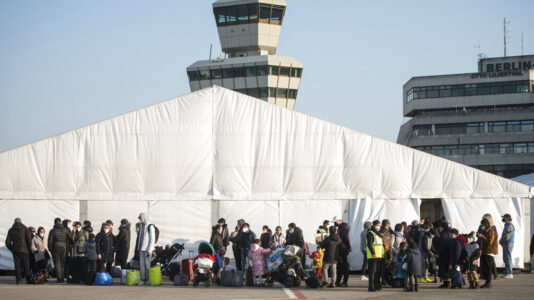Germany is preparing for a heated election campaign after Chancellor Olaf Scholz (SPD) lost a vote of confidence in the Bundestag on Monday, paving the way for new parliamentary elections on Feb. 23. The vote followed weeks of political turbulence after the FDP’s exit from the coalition government, leading to its collapse.
A majority of the 733 MPs withdrew their confidence in Scholz, while there was a surprise move from three Alternative for Germany (AfD) MPs who voted to save the flailing chancellor over fears that his expected replacement, Christian Democratic Union (CDU) leader Friedrich Merz, could ramp up German support for Ukraine and further escalate the war with Russia.
The political discourse in the Bundestag highlighted deep divisions, with key leaders addressing Germany’s economic woes, energy policy, migration, and the war in Ukraine.
In his defense, Scholz emphasized Germany’s long-standing commitment to the European partnership and transatlantic cooperation. He reiterated his stance on supporting Ukraine while safeguarding German security and claimed his government had enjoyed success in tackling immigration and managing the energy crisis.
BREAKING: German Chancellor Scholz loses confidence vote in the Bundestag.
Snap elections are now scheduled for February 2025. pic.twitter.com/plRTM16dLP
— Remix News & Views (@RMXnews) December 16, 2024CDU leader Friedrich Merz criticized the government’s economic policies and called for reforms, such as utilizing all energy sources including nuclear and incentivizing employment among welfare recipients. He pledged no pension cuts under his leadership while targeting the policies of Economic Minister Robert Habeck (The Greens) as a cause of Germany’s economic crisis.
FDP leader Christian Lindner, whose party triggered the collapse of the government, emphasized reducing corporate taxes, cutting bureaucracy, and boosting personal responsibility. He accused Scholz of failing to address Germany’s economic challenges.
AfD co-leader Alice Weidel, whose party is poised for significant gains, blamed mainstream parties for escalating risks in Ukraine and criticized the migration policy, calling for deportations and halts to the naturalization for Syrian refugees.
“The traffic light (ed. a reference to the green, red, and yellow parties that have made up the most recent coalition government) is playing with the risk of escalation in Ukraine, and Merz is also doing the same with the demand to deliver Taurus cruise missiles to Kyiv,” Weidel told lawmakers.
She also attacked the practice of online reporting centers for alleged hate speech, calling them “the work of the traffic light” but noting that “former Chancellor Merkel had already done the preparatory work.”
The latest Insa polling published on Monday shows the risk for the German electorate of ending up with the same faces in power after the election.
The CDU/CSU remains the strongest force at 31.5 percent but without a majority to govern. It would therefore have to seek allies across the chamber to effectively pass legislation.
While the Alternative for Germany is estimated to become the second-largest party in the Bundestag at 19.5 percent, a cordon sanitaire around the party means a deal to co-govern with Merz is all but impossible.
The CDU/CSU will therefore be looking at the ousted SPD at 16.5 percent, the Greens at 11.5 percent, or the FDP, which could squeeze into the Bundestag with 5 percent — the minimum percentage required to ensure representation.
The newly formed Bündnis Sahra Wagenknecht (BSW) stands at 8 percent, but again, a deal with the economically left-wing, socially conservative party is unlikely.
A black-red alliance (CDU/CSU and SPD) could secure a majority with 48 percent, once seats are distributed. A black-green coalition, however, falls short, while a Jamaica coalition (CDU/CSU, Greens, and FDP) becomes a viable option, also achieving 48 percent.
That means that in all likelihood, either the SPD or its two former coalition partners in the collapsed administration would retain power and govern under a CDU chancellor after February’s elections.






